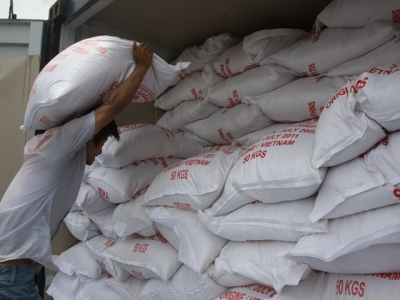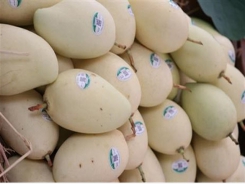Singapore: A challenge for Vietnamese exports

Singapore is a tough export market for Vietnamese goods, said Commercial Counselor Dr. Tran Thu Quynh, Head of the Trade Office of the Vietnamese Embassy in Singapore. In order to carve out niches in the Singaporean market, domestic companies need to invest deeply in sustainable development, he added.
There are good growth prospects for Vietnamese rice exports to Singapore
Dr. Quynh said Vietnam is one of Singapore’s top 15 trading partners. In 2018, total value of Vietnamese exports to this market reached US$3.46 billion, up 1.02 percent compared with 2017. The export growth, though modest, has been continuous and steady over many years, reflecting demand for various types of imports, even in the context of trade tensions and the decline of globalization.
In the long term, Singapore is focused on developing high technology, export services and creative industrial products, areas in which Vietnam does not enjoy export advantages. Therefore, the two economies can complement each other rather than competing, promising good prospects for key Vietnamese exports such as seafood and rice. “In its recent report to Parliament, the Singaporean Ministry of Trade and Industry indicated the need to diversify supply sources and supply chains to avoid interruptions from any specific sources. This promises opportunities for Vietnamese businesses to increase their market share in Singapore,” Dr. Quynh said.
However, Vietnamese companies have met difficulties in trying to carve niches in the Singaporean market due to tight quality controls on imports, especially in terms of food safety. Due to a lack of brands or the inability to meet requirements in terms of packaging and user guides, potential Vietnamese products such as rice, vegetables, roots, fruit, seafood, eggs and milk cannot be exported directly to Singapore but through intermediaries. Moreover, due to their similarities with products of other countries in the region, Vietnamese goods can barely compete in price and quality.
To conquer the Singaporean market, in the opinion of Dr. Quynh, businesses need to be aware of the global sociopolitical situation and acquire good foreign language skills. They should also be willing to invest abroad and pay attention to building brands and promoting their image. In the competition with Vietnamese goods, foreign brands have more advantages given their careful investments in packaging and product information in English. Foreign companies also participate actively in trade promotion activities as well as international fairs and exhibitions to seek partners and customers.
Singaporean businesses have reached a high level of development. They are interested in sustainable growth, willing to share their profits with the community and want to cooperate with other companies on core value of business ethics.
“Therefore, to promote exports, Vietnamese companies need to invest deeply in sustainable development, build business value and pay greater attention to ethical and environmental elements rather than focusing only on short-term profits,” Dr. Quynh said.
Industrial products account for 92 percent of Vietnamese export value to Singapore. There are opportunities for
Vietnam to promote the export of deeply processed agricultural products of high added value to this market.
Có thể bạn quan tâm
Phần mềm

Phối trộn thức ăn chăn nuôi

Pha dung dịch thủy canh

Định mức cho tôm ăn

Phối trộn phân bón NPK

Xác định tỷ lệ tôm sống

Chuyển đổi đơn vị phân bón

Xác định công suất sục khí

Chuyển đổi đơn vị tôm

Tính diện tích nhà kính

Tính thể tích ao hồ




 Low prices cause farmers to dump pineapples
Low prices cause farmers to dump pineapples  Vietnam exports first batch of mangoes to US
Vietnam exports first batch of mangoes to US